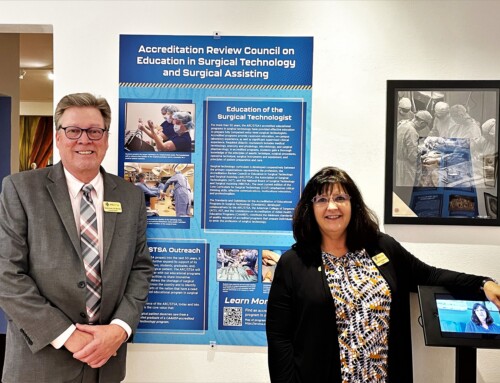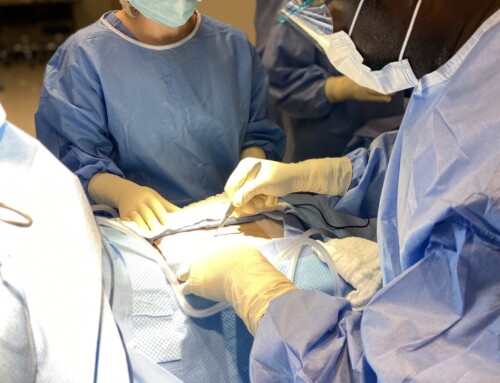
By Cindy Mask, CST, FAST, AA, BAAS, Surgical Technology Program Director, Tarrant Community College
As a surgical technologist, I am constantly aware of the diversity of our patients. As an educator, I realize the diversity of the students I teach. As a citizen of the world, I understand how we must educate ourselves of the difference and similarities in people around the world.
This desire to be a global citizen has led me to seek out knowledge for my students. I want to know what happens in operating rooms and surgical suites around the world. Who is the person scrubbing the case? Do they have certified surgical technologist and, if so, what kind of training is required?
Surgical practices around the word have always fascinated me. This interest led me to seek out opportunities to investigate surgery on a global platform.
An Initial Exploration Overseas
In 2014, I had my first opportunity to experience an international surgical experience. I traveled to Edge Hill University in Manchester, England. My intent was to see firsthand the operating department practitioner (ODP) program, meet the faculty and tour the campus.
Training to be an ODP is closely related to training to be a certified surgical technologist (CST) here in the states. The most significant similarity is that they are the expert in the scrub role intra-operatively and scrub all specialties of surgical procedures.
The ODP’s training is a three-year intensive program. The biggest difference is that the ODP spends one year in preoperative patient care, their second year in intraoperative procedures and their final year as postoperative care for the patient. Learning about this experience led me to investigate more international surgical opportunities, including the EORNA, European Operating Room Nurses Association.
One Step Further: A Trip to the Netherlands
The EORNA holds a conference annually. Following my interests, I submitted an abstract presentation and was elated when it was selected for the 2019 conference. The name of my presentation was “What is a certified surgical technologist and how could it be implemented in the EU?” The presentation was well received by the audience; and, I conveyed the role of the surgical technologist, where we are and where we are going. The participants appreciated that surgical technologists have been organized as professionals for 50 years.
The topic was well received and the EORNA was very hospitable as I prepared for my journey to the Netherlands, where the conference was held in May of this year. I found the conference comparable to the AST conferences with the lecture series, opening night, closing night and network opportunities. I was also amazed by the more than 40 countries represented (the United States included among them).
My conference presentation was grouped among three other speakers from Denmark, Australia and Morocco. I was proud to represent my country and understood what an honor it was to be surrounded by so many cultures and diverse backgrounds. I was the only presenter whose first language was English, which only made me further appreciate the work of my co-presenters. To create a presentation and speak in public is one thing. To be able to do so in a second language is another!
Observations from the EORNA Conference
The conference educated me on how socialized medicine affects surgical intervention. In most European countries, medical insurance is an extra expense and can compensate the mandated socialized medicine for all. This allows everyone to receive healthcare, but the length one may wait for a non-emergent surgical procedure can be frustrating.
The vendor and exhibitor space were comparable to what we see at the annual AST conference. I did see many more reusable surgical items than disposables. The vendors explained the that cost of disposable surgical items versus reusables were much more expensive in Europe. Most hospitals used reusable gowns and drapes.
Once again, socialized medicine and cost containment is of utmost importance. This message was heard time and time again and I appreciated the EU’s willingness to save money for the patient and the hospitals.
A Universal Message
My overall experience was wonderful and showed me firsthand that surgical personnel, from all corners of the world, want the same things for their patients: patient safety and best practices for all of our patients. The lectures I attended reinforced all operating room personnel should have a surgical conscience and be the patient advocate in the operating room.
In 2021, Norway will host the EORNA national conference. I hope to be in attendance. Getting a chance to travel and learn from peers — whether internationally or just down the street — is invaluable. I encourage everyone to seek out opportunities that expand their horizons. These experiences can only make us more well-rounded educators in the long-run.



